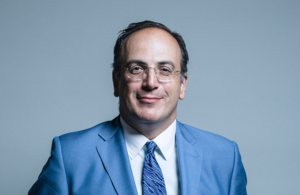Heathrow environmental lawyer found in contempt by Supreme Court
Tim Crosland has been found in contempt of court for deliberately leaking a Supreme Court judgment following an application made by the Attorney General, Rt Hon Michael Ellis QC MP.

Tim Crosland has been found in contempt of court for deliberately leaking a Supreme Court judgment following an application made by the Attorney General, Rt Hon Michael Ellis QC MP.
Mr Crosland, an environmental lawyer and a director of the climate change charity Plan B Earth, represented the charity in a case heard at the Supreme Court in October 2020 concerning the expansion of Heathrow Airport.
On 9 December, in accordance with its usual practice, the Supreme Court circulated its draft judgment in the case under strict embargo to the parties and their legal representatives, including Mr Crosland. The embargoed judgment came with a warning that any breach of it could be treated as contempt of court. On 15 December, the day before the final judgment was announced, Mr Crosland, an outspoken opponent of the expansion of Heathrow, issued a public statement disclosing the Supreme Court’s decision breaching the embargo.
In his statement, Mr Crosland said that he had deliberately breached the embargo as an act of civil disobedience in the knowledge that it would be treated as contempt of court and that he was ready to face the consequences. His statement was published on Plan B Earth’s website and reported by national media.
At the request of the Supreme Court, the Attorney General considered whether to initiate contempt proceedings against Mr Crosland. On 12 February the Attorney General, acting independently of government in his role as guardian of the public interest, decided that proceedings should be brought against Mr Crosland.
Today, the Supreme Court found Mr Crosland in contempt of court and fined him £5,000.
After the ruling, the Attorney General said:
Tim Crosland, a lawyer and a director of a registered charity, was wrong to have acted in contempt. His actions undermined our legal process and he acted in full knowledge of the likely consequences. It is right that the Supreme Court agreed and held him accountable for his actions.